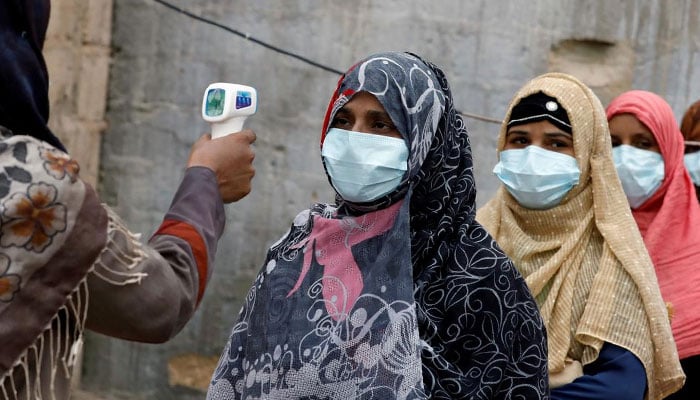Is Pakistan prepared for a second wave of COVID-19?
It is essential that Pakistan’s health system is suitably equipped to deal with possibility of second wave of pandemic
September 18, 2020

It has been six months since coronavirus was declared a pandemic by the World Health Organization (WHO). In the United States, the caseload has crossed six million. While India’s prime minister is facing one of the sternest tests of his political life. Despite the world’s strictest lockdown, India has over four million COVID-19 cases today, making it the world’s second worst-affected country.
As per a Johns Hopkins’ tally, Pakistan is the 18th most-impacted country in the world, in terms of confirmed cases of the deadly virus.
WHO’s Tedros Adhanom Ghebreyesus recently said the pandemic could be over in under two years but warned that “no country can just pretend the pandemic is over”. This is a strong message for countries whose leadership is in danger of being complacent.
Pakistan is one such country. Here, due to some natural phenomenon and lack of extensive testing, today the country is recording hundreds of COVID-19 cases daily, as compared to thousands in May and June. But, even with lesser cases, the facts on the ground remain unchanged.
The country has a weak healthcare system, which is not adequately equipped to provide coverage to the majority of the population. Pakistan’s performance on other health issues is also not up to the mark, as it has not been able to eliminate infectious diseases particularly tuberculosis, hepatitis and most importantly polio.
Even if a vaccine for coronavirus is available quickly, there are few immediate benefits for less developed countries like Pakistan.
The experiences from the world’s previous pandemic are sobering. During the H1N1, or swine flu outbreak in 2009, rich western countries bought up virtually all available supplies of vaccine, leaving poorer countries fully exposed.
And with COVID-19 the stakes are far higher. The behaviour of the richer countries, at the start of this pandemic, was no different from 2009. They were able to secure early access to diagnostic tests, protective equipment, and lifesaving critical equipment for their own populations.
In such circumstances, Pakistan would need to help itself by enhancing the life-saving capabilities of its healthcare systems.
As the country lifts almost all coronavirus restrictions and children return to school, it is essential that Pakistan’s health system is suitably equipped to deal with the possibility of a second wave of the pandemic. This is not just a theoretical risk but a clear and present danger to the general population.
Dr Kamran Pasha, a physician in acute and internal medicine who divides his time working in the United Kingdom and Pakistan, said recently that the “availability of life-saving equipment improves life chances of patients who are suffering complicated health issues due to COVID-19.” So wider access to ventilators and other ICU equipment and drugs, he added, will hugely help in reducing death rates among COVID-19 patients.
As per the data of the ministry of national health, only 1,920 ventilators were allocated for coronavirus patients in the country, till August 30. This is a woefully small number despite a recent push by the government to import more equipment.
The Ministry of Health, Ministry of Finance, Federal Bureau of Revenue must all work closely to make sure that hospitals are equipped with the resources necessary to help poor patients in case the virus spikes again.
An important step the government can take, in this regard, is to extend by at least a year its policy to exempt taxes and import duties on life-saving equipment including ventilators, Bilevel Positive Airway Pressure, oxygen kits, protective suits for healthcare workers and other associated items.
While through these measures the government may lose out on a few taxes this year, but it could save many lives, which is far more valuable.
Siddiqui is a London based Senior Analyst on South Asia. He tweets @SiddiquiAftab











